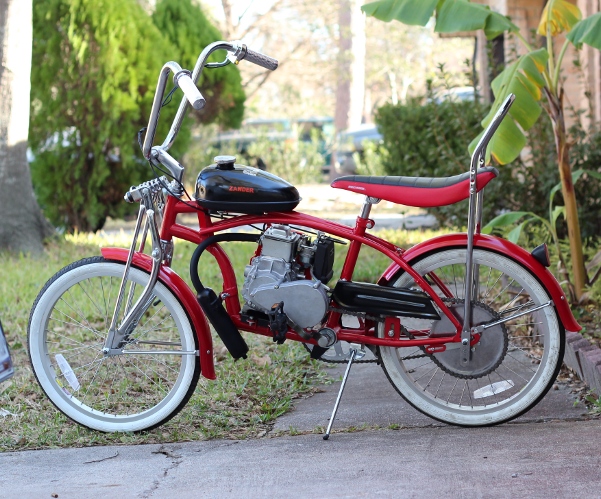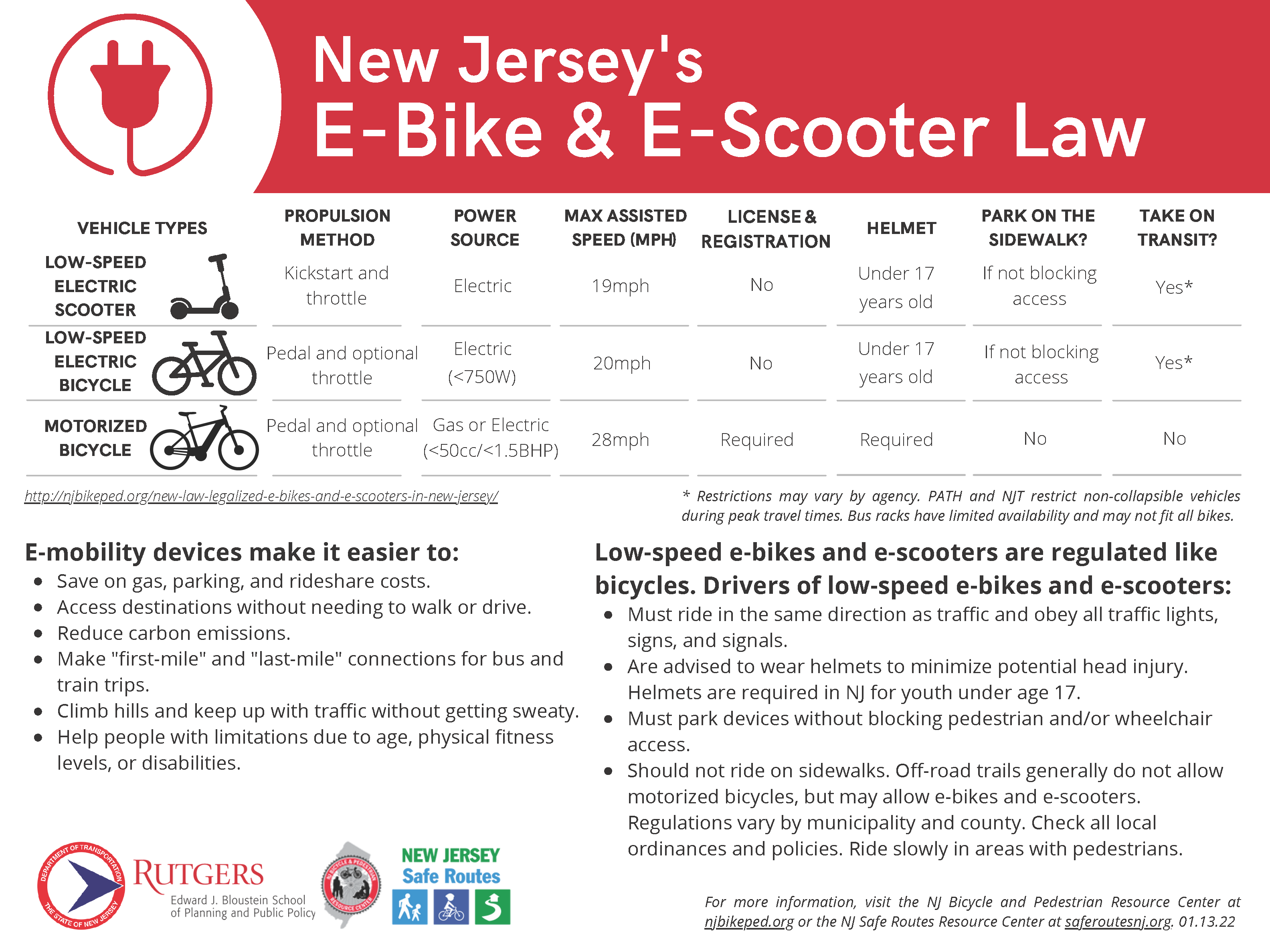Yes, you can ride a gas-powered bicycle without a license in many places. But, it depends on your local laws.
Rules vary from state to state and even city to city. Gas-powered bicycles are an exciting way to travel. They combine the fun of cycling with the speed of a motor. But before you hit the road, it’s important to know the legal requirements.
Some places treat these bikes like regular bicycles. Others see them as motor vehicles, needing a license. In this post, we’ll explore the different laws. We’ll help you understand where you can ride freely and where you need more paperwork. Stay informed to enjoy your ride without any legal hassles. Let’s dive into the details.
Introduction To Gas Powered Bicycles
Riding a gas-powered bicycle without a license depends on local laws. Some areas allow it; others require a license. Check with local authorities to know the rules.
Riding a gas powered bicycle can be an exhilarating experience. The hum of the engine beneath you and the wind in your hair offer a unique blend of freedom and power. But before you hop on one of these two-wheeled wonders, you might be wondering about the legalities, particularly whether you need a license to ride. To get a better understanding, let’s first dive into what gas powered bicycles are all about.What Are Gas Powered Bicycles?
Gas powered bicycles are essentially traditional bicycles fitted with a small gas engine. This engine assists the rider, making it easier to travel longer distances without getting tired. These bikes usually have a small fuel tank and can reach speeds that are higher than a typical pedal-powered bike. They offer a great alternative to cars for short commutes, combining the simplicity of a bicycle with the convenience of a motor. Imagine zipping through traffic without breaking a sweat. It’s like having a tiny motorcycle that you can ride on bike paths!Growing Popularity And Usage
The popularity of gas powered bicycles is on the rise. More people are discovering their practicality for daily commutes and errands. They’re not only cost-effective, but they also provide a fun way to get around town. You might have seen more of these on the streets, and it’s no surprise why. With increasing fuel prices and urban congestion, gas powered bicycles offer an affordable and efficient solution. They bridge the gap between traditional bicycles and motor vehicles. Have you ever considered riding one for your daily commute? If you’re looking to reduce your carbon footprint and save some money, it might be worth considering. Plus, think about all the parking hassle you could avoid! By understanding what these bikes are and why they are becoming more popular, you can make an informed decision about whether a gas powered bicycle is right for you.
Credit: www.chp.ca.gov
Legal Definition And Classification
Understanding the legal status of gas powered bicycles is essential. These bicycles exist in a gray area between regular bicycles and motor vehicles. Laws vary by region, so checking local regulations is crucial. A gas powered bicycle usually combines pedal power with a small engine. This dual functionality raises questions about its classification.
Some regions classify them as mopeds due to the motor. Others treat them like regular bicycles if the motor is under a certain power. Knowing how these bikes are classified helps determine if a license is needed. Always consult local laws to ensure compliance.
How They Differ From Regular Bicycles
Gas powered bicycles differ from regular bicycles in several ways. The most notable difference is the presence of a motor. This motor assists or fully powers the bicycle, depending on its use. Regular bicycles rely solely on human power.
The added engine affects weight and speed. Gas powered bicycles are generally heavier and faster. These differences impact legal classification and required safety gear. Regular bicycles typically have fewer restrictions and requirements. Understanding these differences clarifies legal obligations.
Comparison With Motor Vehicles
Comparing gas powered bicycles with motor vehicles reveals key distinctions. Motor vehicles require a license, registration, and insurance. They operate under strict traffic laws. Gas powered bicycles may not need all these, depending on local laws.
The engine size and speed capacity often determine classification. If the bicycle’s engine is small and speed is limited, it may not be treated as a motor vehicle. This distinction can affect whether a license is needed. Knowing these differences helps in understanding the legal requirements.
Licensing Requirements
Riding a gas-powered bicycle can be an exciting experience. But understanding the licensing requirements is crucial. These requirements can vary significantly. They depend on where you live and ride. Below, we explore these requirements in detail.
State And Local Regulations
Each state may have different rules for gas-powered bicycles. Some states treat them like motor vehicles. This means a license is necessary. Others consider them bicycles. In such states, no license is required. Local regulations can also play a role. Cities may impose their own rules. Always check with local authorities to be sure.
International Perspectives
Licensing laws differ around the world. In some countries, licenses are mandatory. Others have more relaxed rules. For example, in Europe, regulations can vary by country. Some nations require a license for any motorized vehicle. In others, a gas-powered bicycle might not need one. Always research the specific regulations in your country.
Safety Regulations And Standards
Riding a gas powered bicycle might require a license depending on local laws. Check your area’s safety regulations. Always ensure the bicycle meets the standards for safe use on the road.
Riding a gas-powered bicycle can be an exhilarating experience, offering the thrill of speed with the convenience of cycling. However, it’s crucial to understand the safety regulations and standards that govern these bikes. Whether you’re considering a ride for leisure or commuting, knowing the rules can ensure your journey is both enjoyable and lawful. Safety isn’t just about wearing a helmet; it’s about comprehending the broader picture that includes mandatory equipment and your responsibilities as a rider.Mandatory Safety Equipment
Safety equipment is not just a suggestion—it’s a necessity. Helmets are a must-have. They protect your head in case of accidents, which can happen unexpectedly. Reflectors and lights are essential for visibility, especially during night rides. They help other road users see you, reducing the risk of collisions. Mirrors allow you to monitor your surroundings without turning your head, keeping your focus forward. This equipment not only safeguards you but also enhances the safety of others on the road.Rider Responsibilities
As a rider, your responsibilities extend beyond merely following traffic rules. You are accountable for the upkeep of your bicycle. Regular checks ensure that brakes and gears function smoothly, preventing mishaps. You must be aware of the local laws regarding where and how you can ride. Are you allowed on sidewalks, or is street riding mandatory? Moreover, understanding hand signals for turns and stops is vital for communicating your intentions to others. This not only ensures your safety but also builds a harmonious relationship with fellow commuters. While riding a gas-powered bicycle without a license might be possible, are you prepared to uphold these standards? Safety and responsibility go hand in hand. It’s about making informed decisions every time you hop on your bike. What measures will you take to ensure your ride is as safe as it is thrilling?Insurance Implications
Riding a gas-powered bicycle may require a driver’s license, depending on local laws. Insurance implications vary by region, potentially affecting coverage and costs. Understanding these factors ensures compliance and safety on the road.
Riding a gas-powered bicycle without a license can seem like a thrilling shortcut to freedom. However, it brings up an important question: what about insurance? Whether you’re a seasoned rider or just considering hopping on a gas-powered bike, understanding the insurance implications is crucial. It’s not just about covering potential damages; it’s about protecting yourself and your wallet from unexpected situations. Let’s dive into the insurance aspects you need to consider. ###Types Of Coverage Available
When it comes to insuring your gas-powered bicycle, the available coverage types are similar to those for motorcycles. You might think since it’s just a bicycle, your homeowner’s or renter’s insurance could cover it. That’s not the case. – Liability Coverage: This protects you if you’re at fault in an accident and cause injury to someone else or damage their property. – Collision Coverage: This will cover the repairs to your bike if you hit another vehicle or object. Imagine swerving to avoid a dog and hitting a fence—you’d want this coverage. – Comprehensive Coverage: This covers non-collision-related incidents, like theft or vandalism. If your bike disappears overnight, comprehensive coverage would help you replace it. ###Impact On Personal Liability
Riding without the proper insurance can leave you exposed to significant personal liability. If you cause an accident, you might be responsible for covering medical costs and damages. Consider the financial burden of paying out-of-pocket for these expenses. Being uninsured also impacts your legal standing. In some places, riding without insurance is illegal and could result in hefty fines. Are you willing to risk financial ruin for a thrilling ride? Neglecting insurance can also affect your relationships. If you borrow your friend’s bike and get into an accident, who’s liable for the damage? Having insurance can prevent awkward situations and broken friendships. Taking the time to explore insurance options can save you from unnecessary stress and financial strain. It ensures you enjoy your ride with peace of mind. Are you prepared to face the consequences if something goes wrong? Riding responsibly includes being adequately insured.
Credit: www.sj-r.com
Environmental Considerations
Environmental considerations play a crucial role in transportation choices. Gas powered bicycles offer convenience and mobility. Yet, they raise questions about their environmental impact. Understanding their emissions and alternatives helps in making informed decisions.
Emission Standards
Gas powered bicycles emit pollutants into the air. These emissions include carbon monoxide and hydrocarbons. Many regions have specific emission standards. These standards aim to reduce air pollution. Meeting these standards can be challenging for gas powered bicycles. Their engines often lack advanced emission controls. This contributes to higher levels of pollution.
Comparison With Electric Bicycles
Electric bicycles offer a cleaner alternative. They produce zero emissions while riding. This makes them environmentally friendly. Charging them requires electricity, but renewable sources can be used. Electric bicycles often have lower maintenance needs. They operate quietly, reducing noise pollution. Their growing popularity reflects a shift towards sustainable transportation. Comparing both options highlights the environmental benefits of electric bicycles.
Challenges And Controversies
Riding a gas-powered bicycle without a license can lead to legal issues. Different states have varying laws on this matter. Understanding local regulations is crucial to avoid fines and penalties.
Riding a gas-powered bicycle without a license can be a surprisingly complex issue, full of challenges and controversies. Some people enjoy the freedom of these bikes, but others raise concerns about safety and regulations. This topic often sparks debates among riders, lawmakers, and the general public.Public Perception And Misunderstandings
Many people see gas-powered bicycles as an efficient way to get around. Yet, there’s a common misunderstanding that these bikes are just like regular bicycles. This isn’t always the case. Some riders may not be aware that certain areas have specific laws requiring licenses for motorized bikes. You might think you’re saving time and money, but you could end up facing fines or legal issues. Have you ever wondered if your local regulations are clear enough?Debates On Road Usage
The road is a shared space, and that leads to heated discussions about who gets to use it. Gas-powered bicycles blur the lines between bicycles and motorcycles. This creates confusion over where they should be ridden. Should they be allowed in bike lanes, or are they too fast and dangerous? On busy roads, are they considered too slow for car lanes? Your opinion might depend on whether you prioritize safety or convenience. These debates often lead to calls for clearer regulations and better infrastructure. Have you ever been caught in a situation where you didn’t know where you should be riding?
Credit: njbikeped.org
Future Of Gas Powered Bicycles
Riding a gas-powered bicycle often requires a license, depending on local laws. Always check your area’s regulations before hitting the road.
As we look towards the future of gas powered bicycles, it’s clear that they’re not just a fleeting trend. These bikes offer a unique blend of convenience and affordability, making them a viable choice for many. But what lies ahead? How will technological advancements and legislative changes shape their journey?Technological Innovations
Technological advancements are paving the way for more efficient gas powered bicycles. Engineers are focusing on developing lightweight materials that can enhance speed without compromising safety. Imagine a bike that weighs less but has the same power as a traditional model. Improved fuel efficiency is another area of focus. Innovations are being made to extend the mileage per tank, saving you money and reducing environmental impact. Enhanced braking systems and smart integration features are also in the works, offering you a safer and more connected ride. These innovations are not just about performance. They aim to make your riding experience smoother and more enjoyable. As technology progresses, gas powered bicycles could soon rival their electric counterparts in terms of features and benefits.Predicted Changes In Legislation
Legislation plays a crucial role in the future of gas powered bicycles. Current laws vary widely, creating confusion for riders. However, a shift towards more uniform regulations is anticipated. Policymakers are considering new laws that balance safety with accessibility. These might include age restrictions, safety gear requirements, or even specific licensing for more powerful models. This could mean that in the near future, you might need a license to ride certain types of gas powered bicycles. Think about how these changes could affect your daily commute or weekend rides. Are you prepared to adapt to new regulations? Staying informed about potential legislative changes can help you make better decisions regarding your choice of transportation. By embracing technological advancements and understanding upcoming legal shifts, you can fully enjoy the benefits of gas powered bicycles. What future do you envision for your biking adventures?Conclusion And Recommendations
Gas powered bicycles often don’t require a license in many regions. Local laws may vary, so check your area’s regulations. Safety gear is recommended for a secure riding experience.
Riding a gas-powered bicycle without a license is a question that intrigues many. It’s essential to understand the legal requirements and practical implications before you hit the road. This section will provide you with a clear summary of key points and offer recommendations for those considering this mode of transportation.Summary Of Key Points
Gas-powered bicycles often fall into a gray area in terms of licensing. In many places, you don’t need a license if the engine’s power is below a certain threshold, usually around 50cc. However, regulations can vary significantly depending on your location. Always check your local laws to avoid fines or legal troubles. Safety should be your top priority. These bikes may be faster than they seem and require careful handling. Proper safety gear is a must; helmets and gloves can make a world of difference in an accident. Be aware of the environmental impact. While they may seem efficient, gas-powered engines contribute to pollution.Guidance For Prospective Riders
If you’re considering a gas-powered bicycle, start by researching the rules in your area. Visit your local DMV or municipal website for specific guidelines. Think about your riding skills. If you’ve never handled a motorized bike, take it slow and practice in safe, open spaces. Consider investing in a bike with an engine below the licensing threshold. This keeps things simple and legal. Engage with communities or online forums. Learn from others’ experiences and gather tips on maintenance and safe riding practices. Ask yourself if this bike fits your lifestyle. Is it a practical choice for commuting, or more of a leisurely ride on weekends? Would a traditional or electric bicycle be more suitable, considering factors like cost, environmental impact, and ease of use? By addressing these questions, you’ll make a more informed decision and enjoy your rides without worry.Frequently Asked Questions
Do You Need A License For A Gas Bike?
Yes, you need a license to ride a gas bike. Licensing requirements vary by state or country. Always check local regulations.
Is A Motorized Bicycle Legal In Texas?
Yes, motorized bicycles are legal in Texas. Riders must be at least 15 years old and wear a helmet.
How Fast Can A 49cc Motorized Bicycle Go?
A 49cc motorized bicycle can typically reach speeds of 25-30 mph. Speed may vary based on terrain and rider weight.
How Many Cc Bike Can You Ride Without A License?
You can ride a bike up to 50cc without a license in some regions. Check local regulations for details.
Conclusion
Riding a gas powered bicycle without a license varies by location. Always check local laws before riding. In some places, you need a license. In others, you don’t. Safety is crucial. Wear a helmet and follow traffic rules. This ensures a safe and legal ride.
Knowing the law helps avoid fines. Enjoy the ride responsibly.




